Capacitor manufacturers in the USA, who whip up those little energy-storing gadgets, are getting smart about their game. They’re picking specific niches or types of capacitors to focus on.
Why? Well, it keeps them ahead of the pack by flexing their expertise and dreaming up fresh ideas.
And hey, there’s been a buzz lately about making stuff right here in the US. So, you might just see more moolah being pumped into making capacitors right here on American soil in the future.
What is a Capacitor?
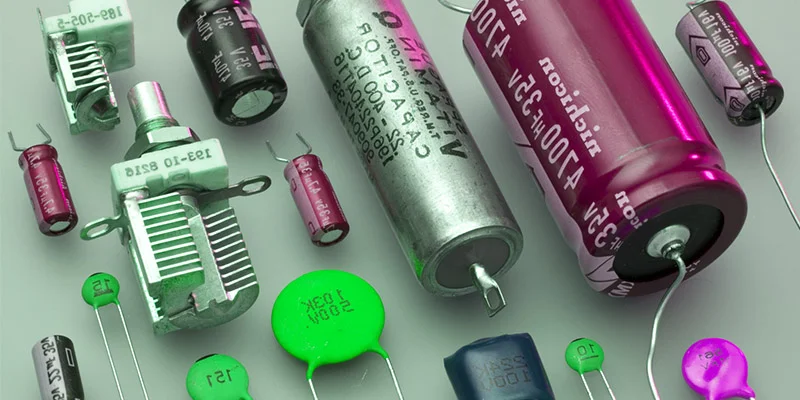
Capacitors are energy-storing devices available in many sizes and shapes. A capacitor is like a tiny battery in electronics.
They consist of two plates of conducting material sandwiched between an insulator made of ceramic, film, glass, or other materials, even air. and when you put a voltage across those plates, one plate gets a positive charge while the other gets a negative.
Capacitors are used in all sorts of gadgets and devices to help regulate and manage electrical currents.
How is a Capacitor Made?
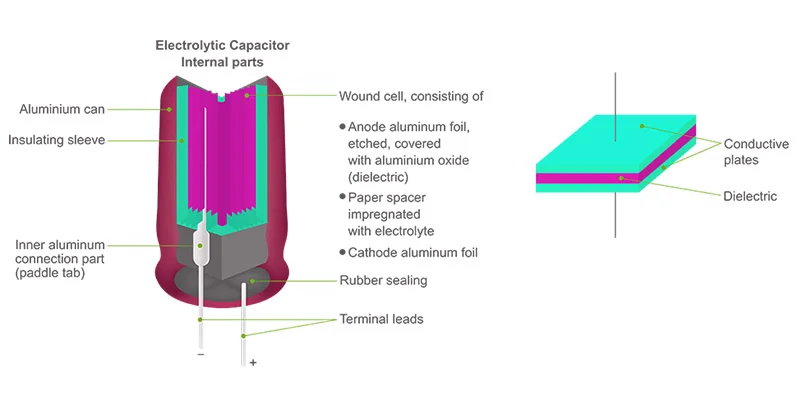
Capacitors are crucial electronic components, made of two electrodes separated by an insulating material called a dielectric.
Here’s a concise overview of how they’re manufactured:
| Step | Steps of Making Capacitors |
|---|---|
| Material Selection | Choose appropriate materials such as aluminum, tantalum, ceramic, polyester, or paper. |
| Dielectric Formation | Form the insulating dielectric material, like electrolyte for aluminum electrolytic or ceramic for ceramic capacitors. |
| Plate Fabrication | Fabricate metal plates (e.g., aluminum for electrolytic, coated metal for ceramics) using processes like etching or deposition. |
| Assembly | Assemble plates and dielectric materials, stacking or rolling for electrolytic, or layering for ceramics. |
| Encapsulation | Encapsulate capacitors in protective casings to safeguard against damage and environmental factors. |
| Testing | Conduct rigorous tests to ensure quality, checking parameters like capacitance, voltage rating, and leakage current. |
| Packaging and Labeling | Package and label capacitors for distribution, tailoring packaging to the type and application of the capacitor. |
Okay, we understand what a Capacitor is and how it is manufactured, let’s take a look at the Best Capacitor Manufacturers in USA 2024
Best Capacitor Manufacturers in USA 2024: Top 6 Companies in Electronic Components
AVX Corporation:
| Attribute | Details |
|---|---|
| Headquarters | Fountain Inn, South Carolina, USA |
| Founded | 1972 |
| Description | AVX Corporation is a leading manufacturer and supplier of advanced electronic components and solutions, including capacitors, interconnects, sensors, controls, and antennas. They offer a wide range of capacitors, such as ceramic, tantalum, film, and polymer capacitors, catering to various industries like automotive, telecommunications, aerospace, and consumer electronics. |
| Number of Employees | Approximately 16,000 employees worldwide. |
KEMET Corporation:
| Attribute | Details |
|---|---|
| Headquarters | Fort Lauderdale, Florida, USA |
| Founded | 1919 |
| Description | KEMET Corporation is a global manufacturer specializing in electronic components, particularly capacitors, electromagnetic compatibility solutions, and supercapacitors. Their capacitor offerings include ceramic, tantalum, film, electrolytic, and polymer capacitors, serving industries such as automotive, industrial, telecommunications, and consumer electronics. |
| Number of Employees | Approximately 14,000 employees globally. |
Vishay Intertechnology, Inc.:
| Attribute | Details |
|---|---|
| Headquarters | Malvern, Pennsylvania, USA |
| Founded | 1962 |
| Description | Vishay Intertechnology, Inc. is one of the world’s largest manufacturers of discrete semiconductors and passive electronic components, including capacitors, resistors, inductors, and diodes. They provide a diverse portfolio of capacitors, including ceramic, tantalum, film, aluminum electrolytic, and power capacitors, catering to a wide range of industries and applications globally. |
| Number of Employees | Approximately 22,000 employees across its operations. |
Cornell Dubilier Electronics, Inc. (CDE):
| Attribute | Details |
|---|---|
| Headquarters | Liberty, South Carolina, USA |
| Founded | 1909 |
| Description | Cornell Dubilier Electronics, Inc. (CDE) is a leading manufacturer of capacitors, specializing in aluminum electrolytic, film, and power capacitors. They serve industries such as renewable energy, power supplies, industrial, and telecommunications, providing high-quality solutions for demanding applications. |
| Number of Employees | Approximately 500 employees. |
Panasonic Corporation:
| Attribute | Details |
|---|---|
| Headquarters | Kadoma, Osaka, Japan (with operations in the USA) |
| Founded | 1918 |
| Description | Panasonic Corporation is a multinational electronics corporation offering a diverse range of products and services, including capacitors. They manufacture various types of capacitors, including aluminum electrolytic, film, ceramic, and polymer capacitors, catering to industries and applications worldwide. |
| Number of Employees | Approximately 274,000 employees globally. |
Murata Manufacturing Co., Ltd.:
| Attribute | Details |
|---|---|
| Headquarters | Nagaokakyo, Kyoto, Japan (with operations in the USA) |
| Founded | 1944 |
| Description | Murata Manufacturing Co., Ltd. is a global leader in electronic components and solutions, including capacitors. They offer an extensive lineup of capacitors, such as ceramic, tantalum, polymer, film, and electrolytic capacitors, serving industries such as automotive, healthcare, telecommunications, and IoT. |
| Number of Employees | Approximately 79,000 employees worldwide. |
What Are the Main Functions and Practical Applications of Capacitors?
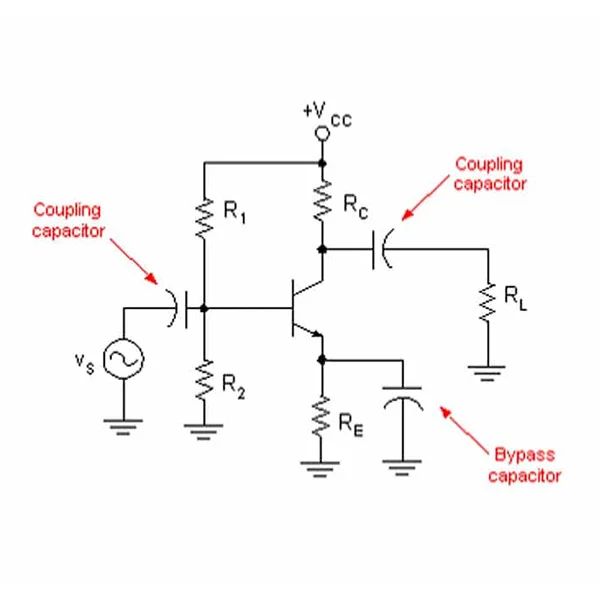
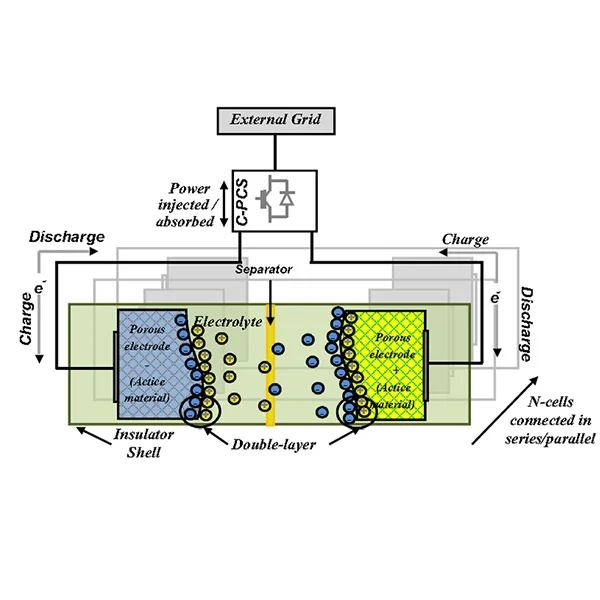
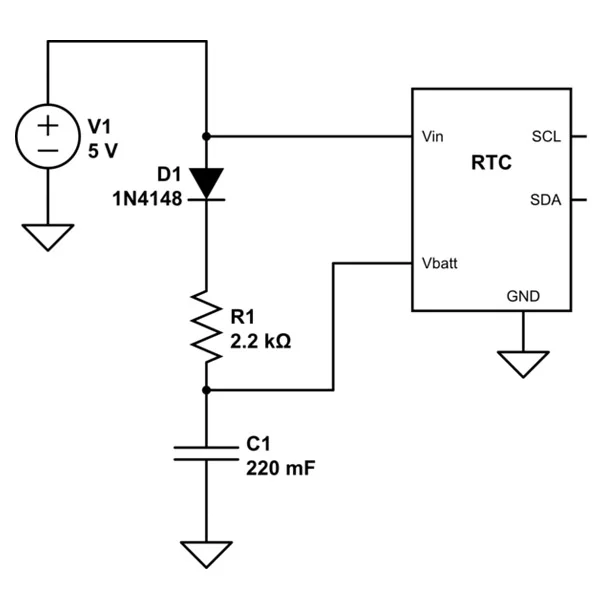
Capacitors have several key functions and practical uses:
- Energy Storage: They store electrical energy for quick release.
- Filtering and Decoupling: Capacitors smooth out power supplies and isolate circuits.
- Signal Coupling: They transmit AC signals while blocking DC.
- Timing and Oscillation: Used in timing circuits for precise delays.
- Voltage Regulation: Capacitors stabilize voltage levels.
- Motor Starters and Power Factor Correction: They help start motors and improve power efficiency.
- Electronic Tuning and Filtering: Capacitors adjust frequencies and filter out noise.
- Energy Harvesting and Storage: Used in renewable energy systems for storing harvested energy.
How to choose capacitor manufacturers in USA?
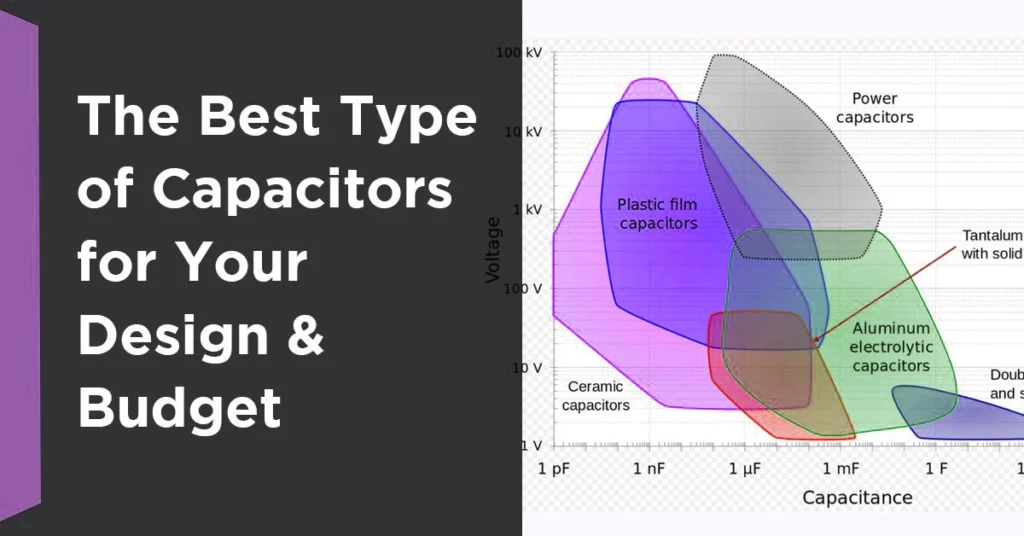
Selecting the right capacitor manufacturers in usa for your application involves careful consideration of several factors to ensure optimal performance and reliability. Here’s a step-by-step guide to help you make an informed decision:
- Define Your Requirements: Determine your application’s needs regarding capacitance, voltage rating, size, and lifespan.
- Research Manufacturers: Look for reputable capacitor manufacturers known for quality and reliability.
- Evaluate Products: Check if the manufacturer offers capacitors suitable for your needs.
- Assess Quality: Prioritize manufacturers with robust quality control measures and certifications.
- Consider Support: Choose a manufacturer that provides helpful technical support and customer service.
- Factor in Cost: Balance quality with cost, considering overall value and reliability.
- Review Supply Chain: Ensure the manufacturer has a reliable supply chain to meet your demands.
- Check Reputation: Opt for manufacturers with industry experience and a positive reputation.
By following these steps, you can confidently select the right capacitor manufacturer for your application.
Of course, you can refer to Best Capacitor Manufacturers in USA 2024: Top 6 Companies in Electronic Components mentioned in this article.
Conclusion
In conclusion, the capacitor manufacturing landscape in the USA is evolving with companies focusing on specific niches to showcase their expertise and drive innovation. There’s a trend towards domestic manufacturing, leading to increased investment in production within the United States. The best capacitor manufacturers excel in delivering high-quality products and meeting stringent standards.
By understanding capacitor functions and evaluating manufacturers based on key criteria, individuals and businesses can make informed decisions when selecting suppliers.